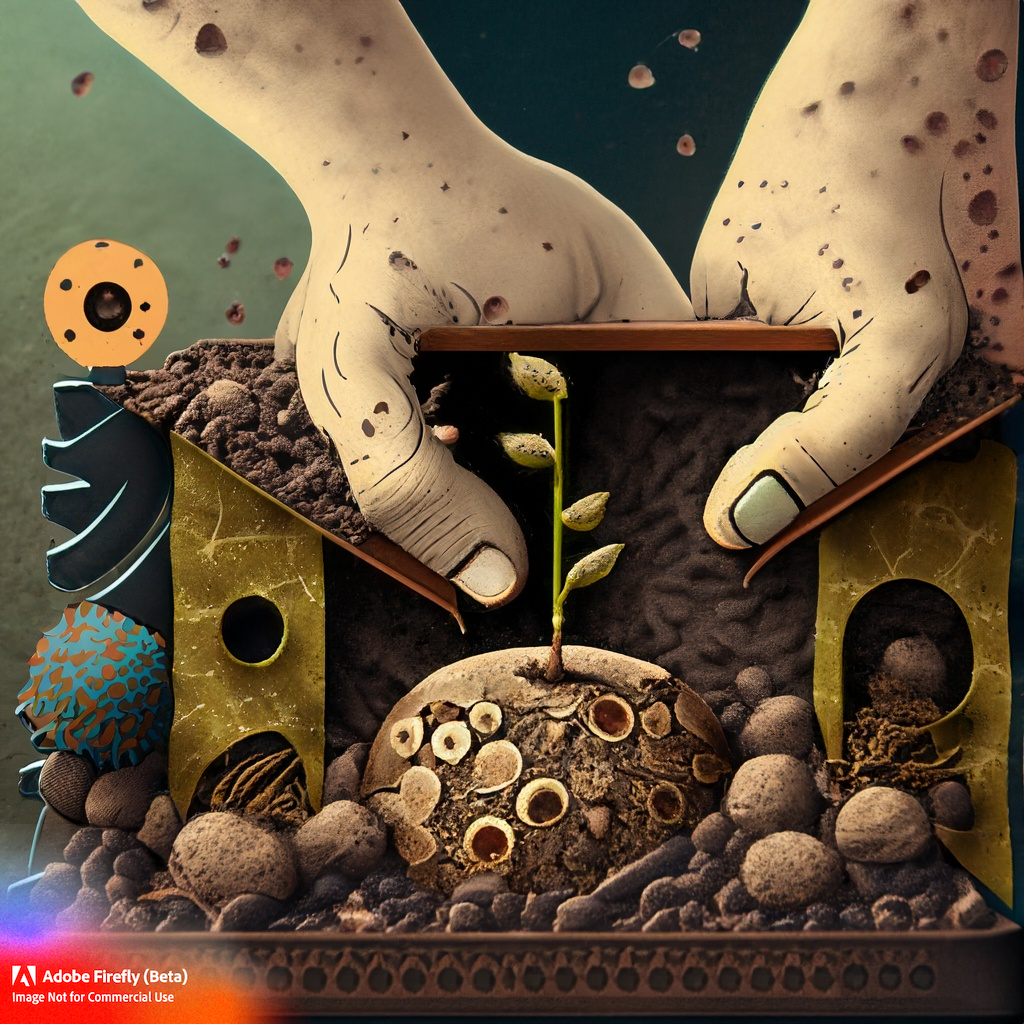Embracing the AI Revolution
“Sometimes when you’re in a dark place you think you’ve been buried, but you’ve actually been planted.” – Christine Caine
As we find ourselves in the throes of the AI revolution, it’s not uncommon to feel overwhelmed by the magnitude of technological change that looms ahead. However, let’s shift our perspective: we’re not being buried, we’re being planted—seeds for a new and vibrant future.
The Human Element in AI
During many of my recent AI sessions and workshops, I often have discussions with a question somewhere in the gist of “When you reflect on your role, what do you feel is the purpose of education and teaching?” The answers usually resonate with the key details of what make us human – to inspire, motivate, work through challenges, be creative, or become a trusted person in the journey of the life of someone in our classroom or school.
The purpose of this question? It serves as a poignant reminder of the attributes that make us distinctly human. AI provides us with a platform to amplify these traits and to interact with each other on a more profound level. However, this can only materialize if we ensure that AI aligns with our values and objectives. But the question remains—how can we accomplish this? How do we expedite the compliancy structure to more of human pedagogy in our school systems?
I am finding that for many we don’t have these answers so going back to recalibrate the values, missions, and objectives is necessary. Or in that the exploration of these very ideas open their ideas to thinking about AI and how to approach with a different mindset to support the words they have in their newsletters, websites, and hallways.
The “Oh Crap” Moment in Education
AI’s looming omnipresence in education is on the brink of causing an “oh crap” moment, reminding me of the pure panic and somewhat chaotic scramble of teaching and learning during the COVID-19 pandemic. This moment will strike again in August when an overwhelming percentage of students turn in their AI-generated assignments, when teachers’ attempts to ban AI usage prove ineffective, and when the first batch of state test results reflect disappointingly low scores because students have been relying on ChatGPT to complete their homework. What will we do then?
Balancing Benefits and Harms of AI in Education
This impending reality prompts us to question: What are the potential harms and benefits of AI for education? How can we utilize ethical frameworks and principles to guide our decisions and actions? How do we work with AI tools instead of against?
The advantages of AI in education are numerous, from personalized learning and increased accessibility, to streamlined administrative tasks. However, potential harms could be substantial if not mitigated, such as dependence on AI, erosion of critical thinking skills, and privacy issues.
As I have been saying a lot lately, how do we move from teaching students to answer questions to a new mindset of questioning answers?
Ethical Frameworks for AI
To traverse this delicate balance, we must apply ethical frameworks to our decisions concerning AI in education. These frameworks should contemplate issues like transparency, fairness, privacy, and accountability. For instance, we can establish limits on what tasks AI can undertake, ensure that AI applications respect student data privacy, and hold AI systems accountable for their actions.
However, these issues cannot be tackled in a vacuum. We need to engage in significant dialogue about AI ethics and its impact on education. This dialogue should involve educators, students, parents, AI developers, and policymakers. We must shatter the silo work that has happened for far too long in education on so many topics and broaden the conversation to include all stakeholders.
Nurturing Ethical AI for Deeper Learning
So, what’s our response to this impending revolution? It’s certainly NOT banning AI. Instead, the solution lies in nurturing an environment that encourages ethical AI usage for deeper, more meaningful learning.
We must reframe our perspective of AI as a tool that enhances human potential. By integrating AI into our curricula, we can strengthen critical thinking, creativity, collaboration, and empathy – the very qualities that make us human. We need to coach our students to work synergistically with AI, preparing them for a future where AI is not merely a tool, but a partner in their personal and professional development.
As we navigate this new landscape, let’s not forget: we may feel buried now, but we’re just planted. We are the seeds of the future, primed to grow into a new era of AI-enhanced education. The growth is yet to come, and we hold the opportunity – and indeed the responsibility – to shape it.
The Future of AI in Education
In the face of overwhelming technological change, let’s reframe our mindset and embrace the opportunity ahead. AI is not our foe but a tool and partner(I hate to say that, but not sure how else to describe it) that can enhance our human potential. As educators, we have the unique privilege to cultivate a future of education that is ethical, enriching, and empowering. Remember, we may feel buried now, but we’re merely planted – ready to sprout into a blossoming future of AI-enhanced education.

Leave a Reply